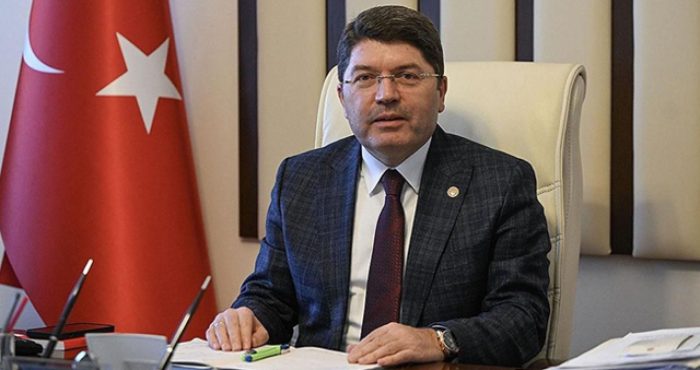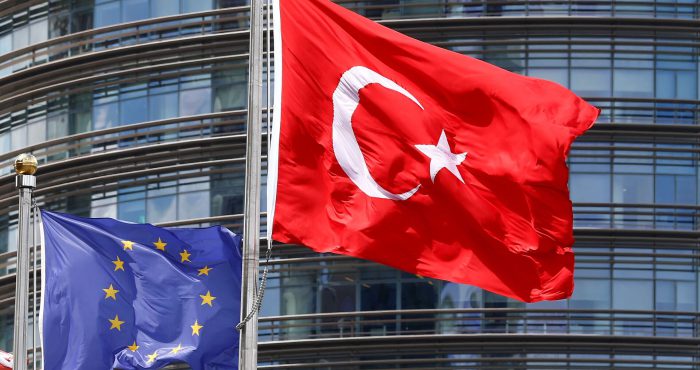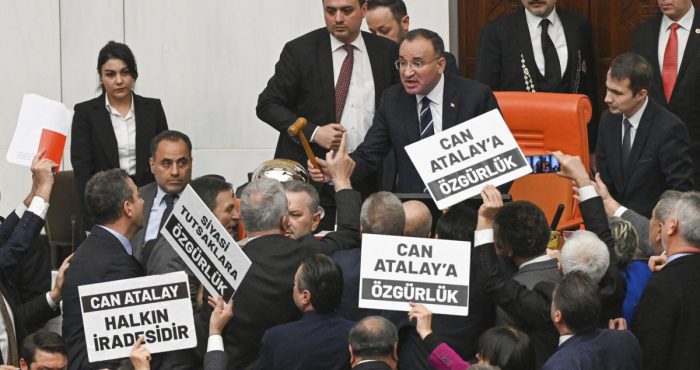Turkey has fallen into the Middle Democracy Trap – where all the basic institutions of democracy exist, but do not function effectively. The illusion of Turkish democracy is slowly slipping, superseded by the increasingly autocratic reality.
The root of this political crisis can be traced to significant deficiencies in the rule of law in the country. This falsely presents itself as the fault of an inadequate judiciary, when in fact the judiciary has been prevented from fulfilling its role and has been dependent upon the Executive. However the judiciary is partly culpable too, as it has lost the public’s trust by failing either to work efficiently or to safeguard its own accountability.
The following proposed reforms are aimed at bolstering the efficiency, accountability and independence that will enable the judiciary to improve the rule of law. This will in turn enable the judiciary to contribute to the welfare of society and to the political reforms that will in turn promote stable politics and improve Turkey’s democracy.
Efficiency
- Lying to the court and concealing relevant but unfavourable evidence has become commonplace; this prevents the full truth being established before courts and prevents judges from delivering fair and accurate judgments. Full disclosure must be enforced.
- Non-judicial and unregulated individuals (e.g. court appointed expert witnesses and police) have been granted excessive judicial authority, due to the redistribution of judicial powers to ease the courts’ workload. The workload that the judiciary needs to shoulder should be reasonably distributed between courts and lawyers. Interrogation courts should be reinstated and the attorneys of the respective parties should carry the burden of collecting and reviewing evidence.
Accountability
- Members of the judiciary are not fully accountable for their actions because, under the pre-permission conditions for the prosecution, they decide whether to prosecute their own colleagues. Furthermore, unless their superiors give permission for prosecution, public officials have de facto immunity from liability for any unacceptable behaviour, such as violations of public duty, omissions and even offences. These provisions must be abolished.
- The current provisions in the Turkish Constitution grant immunity to the members of the Council of Judges and Prosecutors (HSK) by preventing judicial reviews of decisions and appointments. These provisions must also be removed.
- To deal with the review of HSK’s decisions and the unacceptable behaviour of members of the judiciary an appropriate judicial mechanism and authority must be established.
Independence
- The current judicial council HSK is merely a public professional institution for judges and prosecutors and in spite of this it is given full authority to rule and coordinate the provision of judicial services in the country. Its organisation and composition is incompatible with its functions as it exclude the lawyers and lawyers’ bars despite they are indispensable factor of judicial functions. On the other hand almost half of the HSK is appointed by the President, which facilitates bias and leaves the door open for corruption.
- In order to have a truly independent judicial council a new judicial council that may be named as Supreme Justice Authority (“SJA”) should be formed in order to determine the justice and judiciary related policies in the country and also to coordinate the judicial operations. All legal professions such as the judges, prosecutors and lawyers should have their independent organisations, COJ, COP and COL (bars) respectively; independent, formed solely by its members but accountable to SJA. The SJA should be restructured in a manner that no groups can gain influence over it and it is transparent and accountable. The SJA’s functioning should be designed in such a manner that the public’s judicial policies and preferences are fully reflected in its determination of policies but absolutely separated from the judiciary’s daily operations. All the decisions and transactions of all judicial institutions such as the SJA, COJ; COP, COL (Bars) and the like, and the procedures for nomination and appointments to SJA and to any of these judicial professional institutions should be transparent and open to public deliberation and judicial challenge.
Fair Representation and Subsidies
- Current election systems violate the principles of democratic governance and fair representation by allowing the central polling and fixed and closed lists. This enables a small elite to dominate. These unconstitutional systems should be eradicated.
- Mainstream political views monopolise elections and prevent a fair race between competing views. Subsidies from the treasury should be distributed equally within three bands: for mainstream views, for secondary views and for marginal views.
A Civil Constitution
- Turkey’s constitution is neither truly democratic nor able to address the nation’s needs – despite amendments, shortcomings and contradictions remain. A new and comprehensive Civil Constitution must be agreed which strengthens the rule of law prevailing over the Executive; upholds accountability in the public sector, addresses polarisation and promotes the principle of tolerance. The Constitutional Protection institutions and mechanisms should also be restructured and advanced.
- Unconstitutional laws and decree-laws remain, and serious gaps occur in compliance with the Constitution as the Constitutional Court lacks the authority to address these issues. The Constitutional Court must decide on the constitutionality of secondary legislation, and all individuals (in a position of political authority or not) should be allowed to file annulment actions with the Constitutional Court to trigger the court to review the laws of the parliament.




